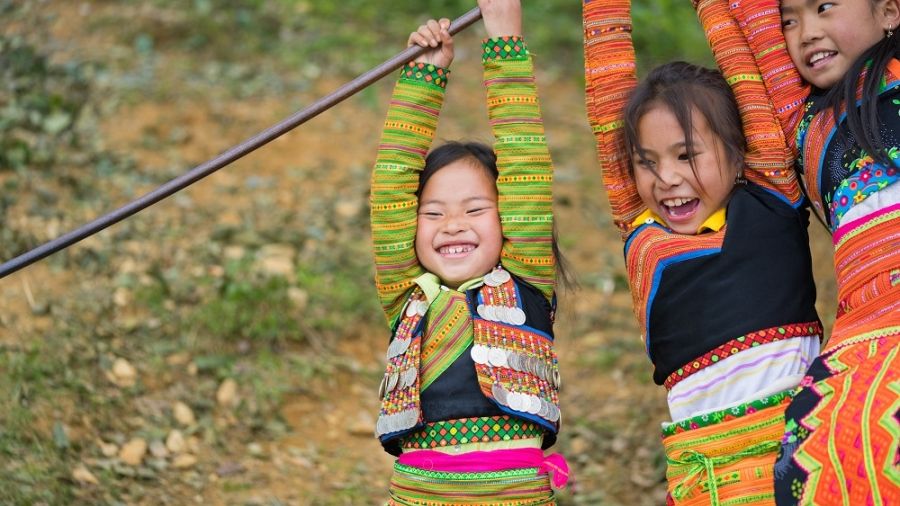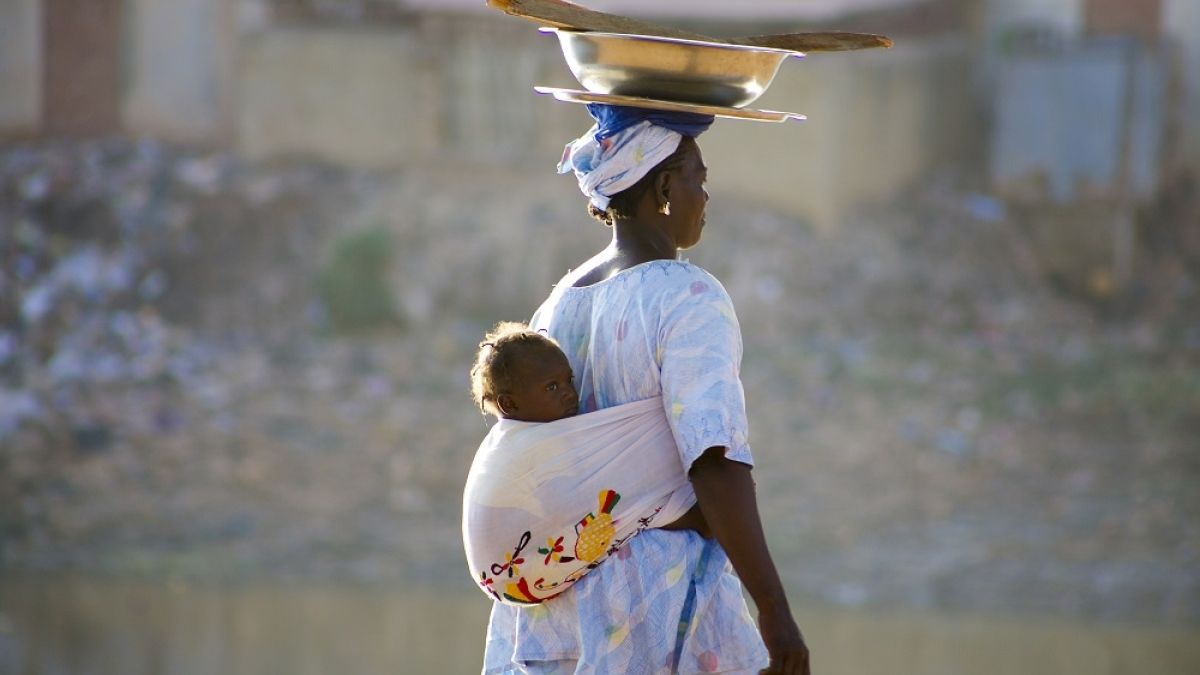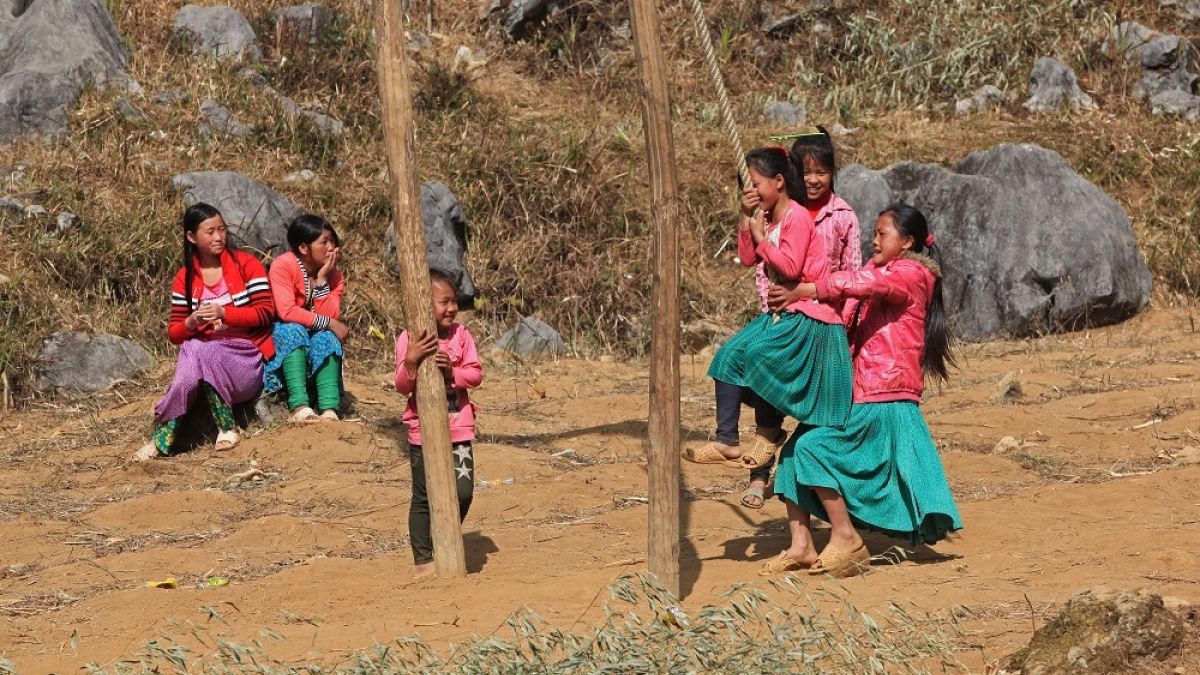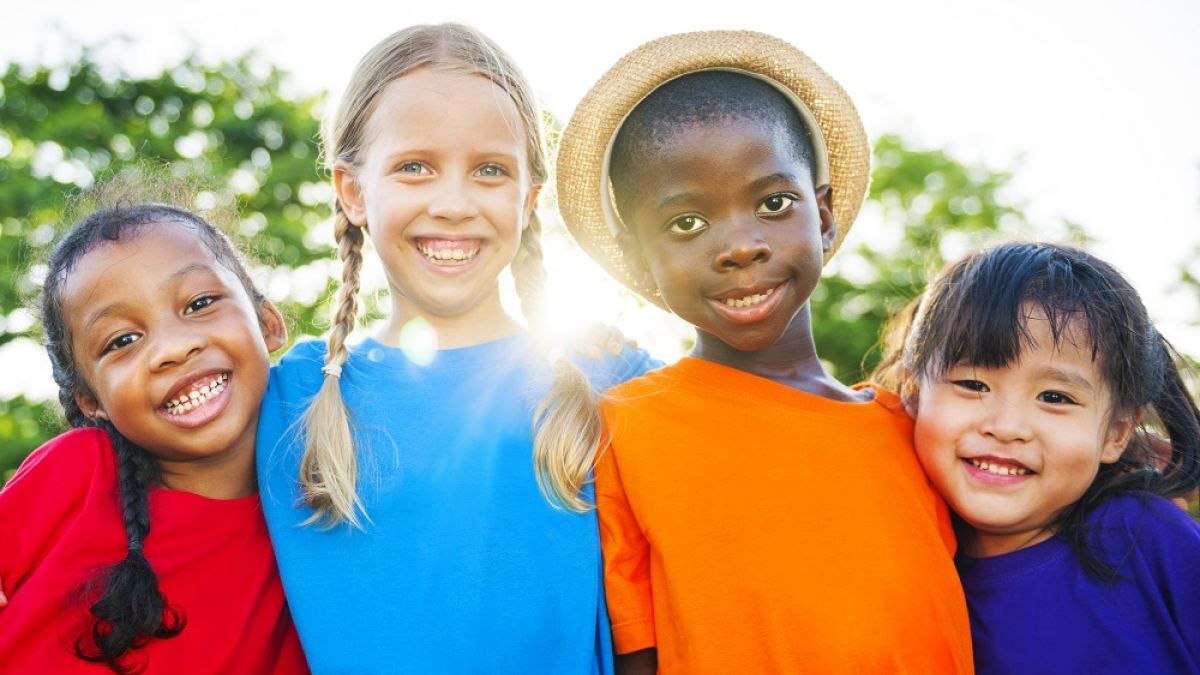
Today's children don't spend enough time outside, but whose fault is that? If we want to fix the problem, we need to consider the ancient support networks that helped our ancestors cope.
In a survey of nearly 9,000 U.S. preschoolers, researchers found that only half the children went outside with their parents on a daily basis. This might sound like a terrible dereliction of duty on the part of modern parents, but we should bear in mind: A Pew Research Center study suggests that 21st century parents actually spend more time with their children than did parents of the 1960s. Moreover, modern mothers have increased time spent helping and caring for kids despite working longer hours in paid employment.
So if more children are staying indoors, we shouldn't assume their parents are being lazy. Nor can we blame the situation on maternal employment. What's going on?
If we take the long view, it's evident that parents today are coping with a new constraint. Throughout our evolutionary history, mothers have always been "working mothers," and they've always needed help with childcare. But in a break with the past, parents are now expected to closely supervise their children's outdoor play. And that level of attention is inconsistent with getting your work done—particularly if we want kids to spend a substantial portion of their lives outside.

Photo by Michel Piccaya
You can see how these conflicts play out in the lives of female hunter-gatherers, people whose life-ways most closely remember those of our ancestors. Have you ever tried walking ten miles through the bush with young children in tow? While keeping an eye out for predators? And digging up yams, or collecting bird eggs? Good luck. Similarly, women living in traditional agricultural societies have a lot to do besides watch their kids. Their economic contribution is essential for their families' survival.
So how do they manage? Hunter-gatherer women can pack their infants into hands-free slings, but older children are another matter. A foraging mission might last for hours. Bringing along a toddler or dawdling child could be very difficult, even dangerous. So kids stay behind, and adults take turns watching out for them. Today you leave camp, and I'll do chores at home. Tomorrow, I will get to go out while you stay behind.
It sounds a little like co-op daycare, but there are important differences. For one thing, this is a very small-scale society. At any given time, there may be only a couple of infants under the age of 12 months. There may be no more than 8-10 kids in the whole community, and their ages vary widely. Children spend most of their time playing together in these mixed-aged groups.
Another point: These playgroups aren't under direct adult supervision. To some degree, the children are watching themselves—with the bigger kids looking out for the younger kids. But the adults are usually within earshot, and if something goes wrong, the kids know where to go for help.
In societies practicing horticulture or small-scale agriculture, the resemblance to daycare is weaker still. That's because it's often the kids themselves who look after their younger siblings. In places like Malaysia and Polynesia, babysitters may be as young as 4 years old. It's an unsettling image to the average, Western viewer: A little girl with a baby strapped to her back. If she lived in the United States, her parents would get reported to child services. But this is common practice in many parts of the world. Kids taking care of kids.

Photo by Asia Images
These children aren't left all alone. They play outdoors on what anthropologist David Lancy calls the "mother ground," public places where various adults (who are busy working) can keep an eye out. But the sibling babysitters are unquestionably doing real work.
Are they good at it? It depends on your standards. These child babysitters take on a lot of responsibility, and they discharge it with a competence that may surprise us. But there's no denying it: A child babysitter doesn't have the skills of an adult nanny. She doesn't have the same capacity for self-control. Kids may lose their patience. In some cultures, they get away with teasing, scolding, or hitting the younger children in their care. If they get annoyed or distracted, they might shrug the baby off.
And those multi-age playgroups aren't free of trouble. Sometimes, a serious fight breaks out. Or somebody gets injured, physically or psychologically.
But these are tradeoffs that parents have been willing to make. Playgroups and sibling babysitters solve the childcare problem, and it's likely they've been doing so for many thousands of years.

Nowadays, our lifestyles have changed. So have our settlement patterns and economic systems. There is no friendly, village commons. Sibling babysitters are out of favor, and families are often disconnected from traditional social networks. They may live far away from grandparents, aunts, and uncles. Yet we still face the same tradeoffs. We have to do much more than take care of our children.
Little wonder, then, if parents resort to television and electronic entertainments to keep their kids safely occupied. Like parents of previous generations, they don't have a lot of time to personally monitor their children while they play outside, and the mother ground is gone.
We can improve the situation, but it will take a community effort. We need to forge new cooperatives, and find new spaces where neighbors can keep an eye out for each other's kids. Are we ready to invent a new, 21st century mother ground? Doing so might transform modern childhood, and help our kids rediscover the outdoors—and each other.
About the Author
Gwen Dewar received her Ph.D. from the University of Michigan at Ann Arbor, where she studied biological anthropology, behavioral ecology, the evolution of behavior, social learning, and cognition. She is a science writer and creator of Parenting Science, the website that popularizes research of interest to parents, educators, and students of human nature.